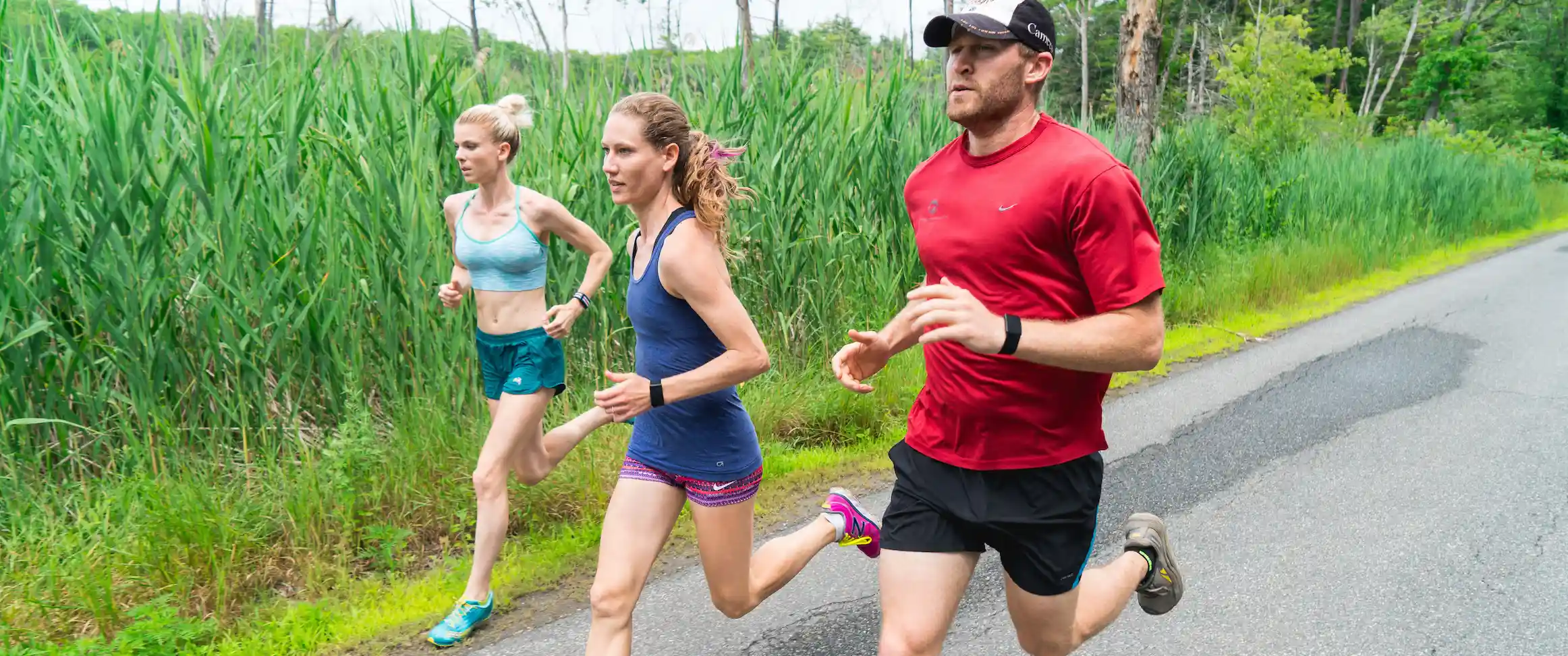Topics
- Article
#WHOOPEd Weekly Digest, Vol. 18

Breathing exercises to benefit all types of runners, what and when to eat while you’re in training, and why some teens need more sleep than others.
Tuesday, September 5
What Everyone Gets Wrong About the 10,000 Hour Rule
https://heleo.com/conversation-what-everyone-gets-wrong-about-the-10000-hour-rule/16195/
From a conversation with Anders Ericsson, Conradi Eminent Scholar and Professor of Psychology at Florida State University. Ericsson is responsible for the research behind Malcolm Gladwell’s “10,000 Hour Rule”:
- There’s a difference between practicing with an intent to improve (“purposeful practice”) compared to just simple repetition. For example, a musician taking lessons from a teacher is more valuable practice than a band performing their songs. In sports, lessons/coached practice is more valuable for improving than playing the game.
- Whether or not one is genetically predisposed to succeed in a certain area, the role of the teacher is crucial in determining the success of the individual in that area. Ericsson advises learning from high-level performers in that field.
- In our everyday professions, we can benefit from finding someone to play the teacher role. If employers help employees improve, it’s a win-win scenario.
Wednesday, September 6
Importance of timing your meals as an athlete
https://www.nswis.com.au/nutrition/importance-of-timing-your-meals-as-an-athlete/
How can you make the most use of the fuel you’re putting in your body in order peak athletically and recover as best as possible afterwards?
- Eat carbohydrates both before and after training.
- Consume protein regularly over the course of the day.
- Small, frequent meals are preferable. Every 2-3 hours when heavily training and 3-4 hours when not. Avoid going longer than 5 hours between meals.
- Have a meal 3-4 hours before training, then a small carb snack 1-2 hours before. Drink water in the hour leading up to excercise.
- Eat as soon as possible in order to best recover afterwards, ideally within 30 minutes.
Thursday, September 7
4 Breathing Exercises For Every Level Of Runner
http://running.competitor.com/2017/09/training/breathing-exercises-every-level-runner_167857
Controlling your breathing is an essential part of running at any level. Here are four steps to get there:
- Belly Breathing – Practice by lying on your back, putting your hands over your belly, and feeling it rise and fall as you breath.
- Combination Breathing – Work on breathing in and out through both your nose and mouth at the same time.
- Breathing Patterns – Begin by walking and trying to breath in for two steps, then out for two steps, using both belly and combination breathing. Then try the same while running.
- Progressive Breathing Patterns – Upgrade your breathing patterns to three or four strides at a time.
Friday, September 8
Why one teenager may need more — or less — sleep than another
http://newsroom.ucla.edu/releases/why-one-teenager-may-need-more-or-less-sleep-than-another
From a new study by UCLA in the Journal of Clinical Child and Adolescent Psychology:
- 419 freshman and sophomore high school students in the Los Angeles area filled out a three-page checklist daily for two weeks about their sleep and mood.
- “Researchers found that younger adolescents and those who reported more frequent anxiety or depression symptoms such as crying, worrying and fatigue, experienced their best next-day moods after getting more sleep the night before as compared to older youths and those with fewer symptoms.”
- Most teens need 8-10 hours per night, and many don’t function well with less than 7 hours or more than 11.
- The study’s lead author, Andrew Fuligni, suggests that more research be done into the varying sleep needs of adolescents regarding their mental health.